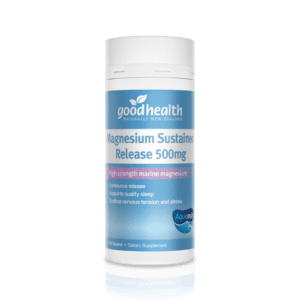
Magiê là một khoáng chất quan trọng cần thiết cho mọi cơ quan trong cơ thể (đặc biệt là tim, cơ và thận) nhưng nghiên cứu cho thấy magiê cũng có thể hỗ trợ sức khỏe phổi. Đã có nhiều nghiên cứu quan trọng chỉ ra mối liên hệ giữa mức magiê thấp với các triệu chứng gia tăng cũng như nguy cơ rối loạn chức năng cao hơn. Các nghiên cứu đã chỉ ra rằng việc tăng mức magiê có thể cực kỳ có lợi, hỗ trợ khả năng đưa không khí vào và ra của phổi. Cơ thể cần mức magiê cao hơn để hỗ trợ các triệu chứng.
Nguồn thực phẩm chứa magiê
Mặc dù có hàm lượng magiê cao trong các loại hạt, ngũ cốc nguyên hạt và rau lá xanh, nhưng hệ tiêu hóa của chúng ta rất khó chiết xuất magiê từ các nguồn thực vật, vì magiê và các khoáng chất khác liên kết chặt chẽ với những thứ như axit phytic. Các loại trái cây như chuối, bơ, chà là, nho khô, quả mọng, dứa và đu đủ là những nguồn thực phẩm thực vật tốt nhất, nhưng khả dụng sinh học không hoàn hảo. Trong số các nguồn thực phẩm động vật có khả dụng sinh học cao, các sản phẩm từ sữa, nếu dung nạp được là rất tốt - hãy cố gắng lấy sữa thô và chưa qua chế biến từ một trang trại để bạn có thể tự làm. Thịt động vật và hải sản, đặc biệt là cá béo và động vật có vỏ, có hàm lượng tốt. Nước dùng xương là một nguồn tốt nếu được nấu trong ít nhất 24 giờ với giấm táo và nước dừa chứa một lượng magiê tốt.
Thiếu hụt magiê
Một số tình trạng sức khỏe nhất định cũng có thể làm giảm nồng độ magiê cũng như đổ mồ hôi quá nhiều, phân lỏng và căng thẳng kéo dài. Tiêu thụ nhiều cà phê, soda, muối tinh chế, đường và rượu cũng có thể làm giảm nồng độ magiê. Đường, đặc biệt, đòi hỏi lượng magiê cao để xử lý. Các triệu chứng điển hình của tình trạng thiếu magiê rất đa dạng nhưng có thể bao gồm lo lắng, cơ bắp không yên, cáu kỉnh, hồi hộp, các vấn đề về lưu lượng máu, cơ bắp căng thẳng và yếu, các vấn đề về hô hấp và thói quen ngủ kém.
Dưới đây là những tác dụng của magiê:
Canxi và magiê hoạt động phối hợp trong nhiều lĩnh vực. Chúng phải cân bằng để hỗ trợ hơi thở thư giãn. Cơ thể bạn cần đủ lượng magiê để sử dụng vitamin D một cách hợp lý. Vitamin D rất cần thiết để hỗ trợ sức khỏe phổi và miễn dịch. Magiê cũng có thể hỗ trợ phản ứng miễn dịch khỏe mạnh trong trường hợp có tác nhân kích hoạt từ môi trường. Magiê không phải là yếu tố duy nhất cần cân nhắc khi phổi cần hỗ trợ - có thể có tình trạng nhạy cảm với thực phẩm hoặc các vấn đề về chuyển hóa, chế độ ăn uống có thể không đủ chất dinh dưỡng, căng thẳng đóng vai trò rất lớn và môi trường rất quan trọng - nhưng nó là một phần quan trọng trong đó.
Loại Magiê bổ sung nào có thể giúp ích?

Magiê giải phóng kéo dài tốt cho sức khỏe là sản phẩm magiê biển nguyên tố 500mg độc đáo, được thiết kế đặc biệt để giải phóng magiê từ từ vào cơ thể bạn trong hơn 8 giờ, cho phép cơ thể bạn hấp thụ và sử dụng magiê đúng cách khi cần, mà không có bất kỳ tác dụng tiêu cực nào đối với tiêu hóa.
TAPSPP1478

